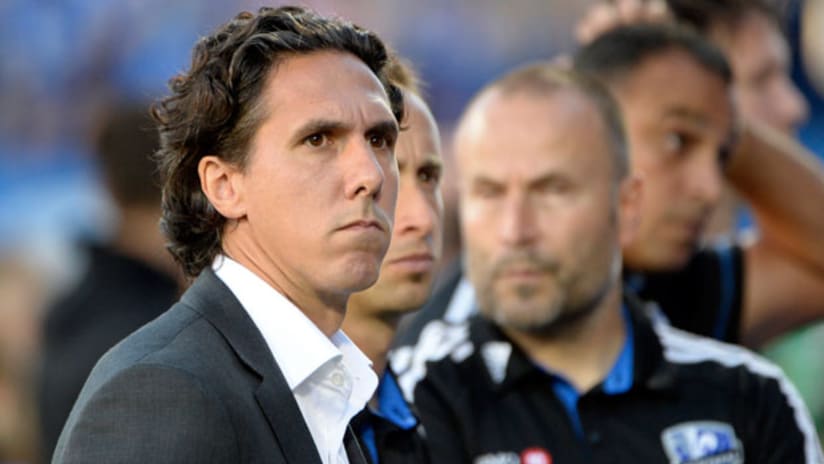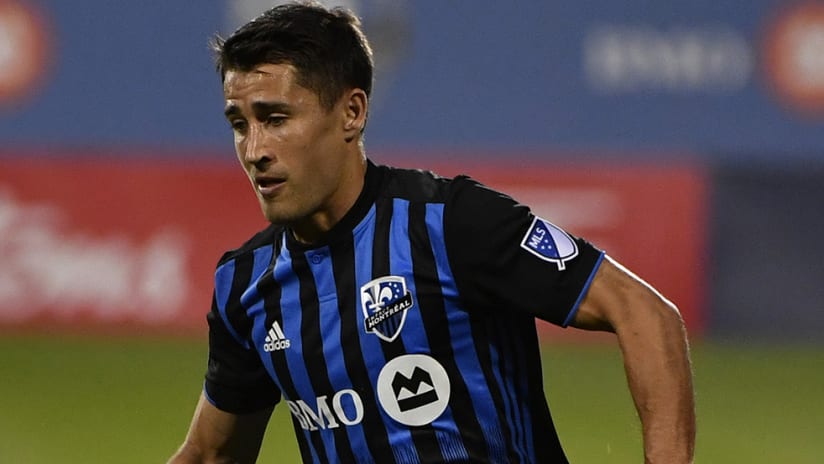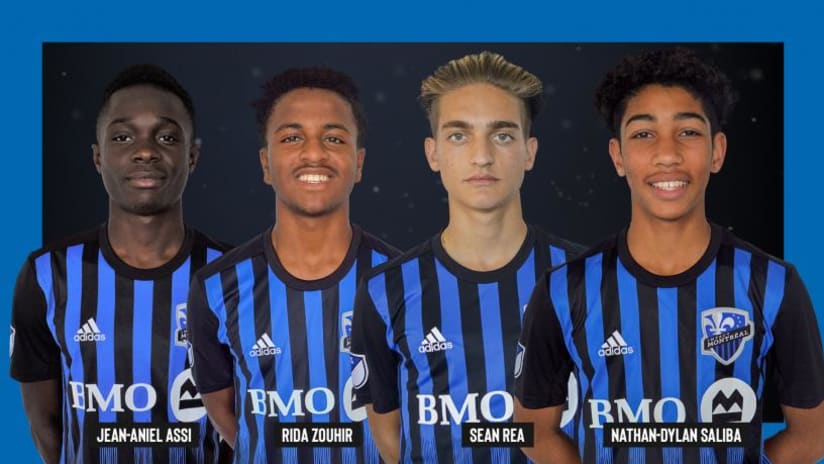Friday, the Montreal Impact officially removed Mauro Biello's "interim" tag. The head coach earned the temporary title (this time) on August 30, and MLSsoccer.com beat writer Olivier Tremblay soon took a deeper dive into the journey that brought Biello to the top job of his hometown club. Read on for more!
MONTREAL—Loyalty – to club and city – comes naturally to Mauro Biello.
In 1999, Biello was without a team. His hometown club, the Montreal Impact, had opted out of playing its outdoor season, focusing instead on preparing for an indoor campaign. As a result, Biello signed with the Rochester Raging Rhinos in the A-League, then North America’s second division.
The Rhinos missed out on a second straight league championship that season. In the US Open Cup, though, they knocked out four MLS teams – the Chicago Fire, Dallas Burn, Columbus Crew and, in the final, Colorado Rapids.
That run captured the attention of fans, but also MLS franchises seeking to improve their roster. Biello, playing in midfield, scored two goals in five starts. MLS clubs were interested enough to reach out, but Montreal, back outdoors, beckoned as well.
“There were some discussions about staying in MLS,” Biello told MLSsoccer.com. “There were rumblings about New England and Tampa Bay. They went through the coaches. I don’t want to go into detail, but I was also playing indoors at the time, and it made more sense for me to do both [indoors and outdoors], financially. I was getting married. … And [Montreal] was home.”
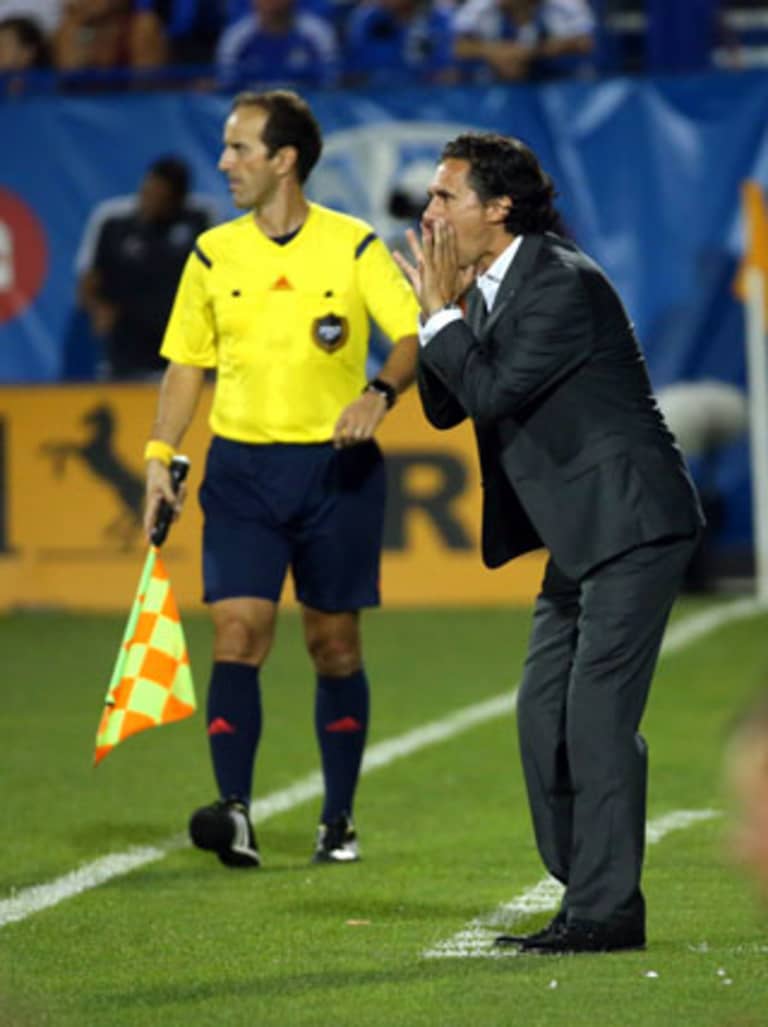
So it remains, 16 years later, with no regrets. This isn‘t a time for second-guessing, either. Biello is 10 days into his new gig as interim head coach of the Montreal Impact, a team he is almost synonymous with. That Rochester stint aside, Biello never left the Impact from the moment he joined the club during its inaugural 1993 season.
He got his start in the old Canadian Soccer League, when the Montreal Supra drafted him in 1991, a time when many North American players played both indoor and outdoor soccer. He started playing indoors for the Buffalo Blizzard in 1995, changing teams two years later when the Impact joined the National Professional Soccer League themselves. Biello played both forms of soccer for Montreal for three seasons, until the Toronto Thunderhawks bought the Impact’s indoors franchise. After a single season with the Thunderhawks, the NPSL folded, in 2001.
Through the Biello's Italian origins, soccer was part of the family culture. Biello had two older soccer-playing brothers, but it was him that rose through the ranks, reaching the professional level in his hometown.
“At the time, it wasn’t like it is now,” Biello says. “To get into Europe, it was a little bit harder, back in the day. You really needed good connections, good contacts. The exposure wasn’t as open. In the early 90s, internet wasn’t really there. There wasn‘t satellite TV where you’re watching soccer. You’re a Canadian kid. There was a league here. I played indoors, outdoors, did fairly well.”
He wasn’t the biggest. He wasn’t the strongest. But Biello, a forward by trade, was dedicated. He scored 77 goals and provided 67 assists in 389 games for Montreal. He remains their all-time leader in goals and appearances. He is the only player to have had his number retired at Stade Saputo.
Heath Pearce only spent one season in Montreal in 2014, but he's convinced that such a sense of history, of a life spent at one club, gives Biello an edge.
“When he said, ‘Have some pride,’ you knew where it was coming from,” Pearce said in a phone interview.
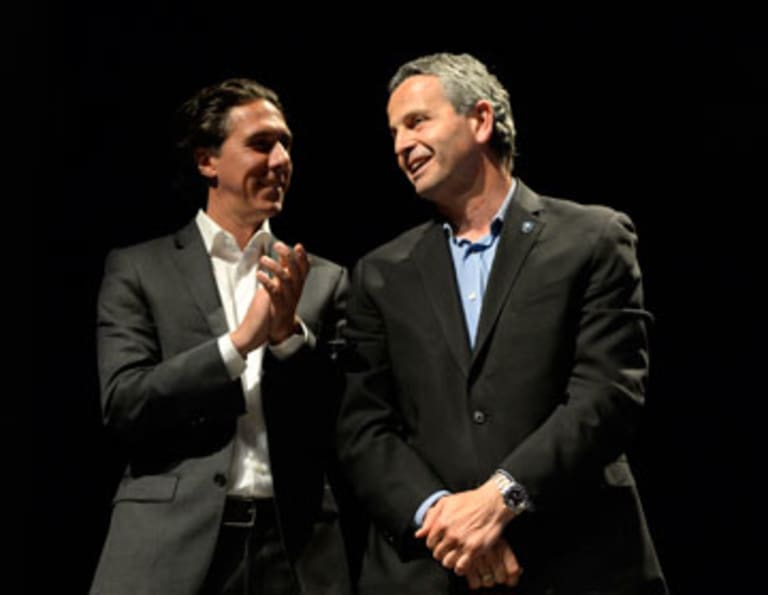
Pearce believes that Biello has all the tools to succeed as an MLS head coach. He remembers Biello as an open-minded and savvy assistant coach, one who was able to strike a middle ground between the firmness of a boss and the approachability of a fellow player.
Biello got his point across, too, during the handful of times that he took over for the suspended Frank Klopas. He didn’t just step in, Pearce points out. He stepped up.
“He’s always had that ability to deliver that message,” Pearce says. “I got to see him do that in the head coaching role. He came in, and he exploded at one point at halftime. But he wasn’t exploding in the sense that he was just throwing F-bombs around and losing his cool. He came in, still stuck to his points, stuck to what he wanted to say, but he said it in a way that you could feel his energy. But it still had a purpose. … Everything that came out of his mouth had a value.
“He took the reins, and he ran with it,” he continues. “He showed assertiveness, and a confidence that he knew what he was doing. He was capable of handling that.”
Impact assistant coach Jason Di Tullio was a defender at the club from 2002 to 2007, when injuries cut his career short. He admits that his first thought upon meeting Biello, surrounded by bigger and taller players, was, ‘How come he’s so good?’
But what Biello lacked in physique, Di Tullio argues, he made up for with preparation.
“I always felt like Mauro was prepared and did everything properly to make sure that his body was in the best condition,” Di Tullio says. “The second thing was his personality. You cannot not like Mauro Biello. I remember feeling comfortable speaking to him. … With that comes the respect. He’s prepared, he goes up to the field, he performs, he comes out, he’s humble, always grateful to the club that they gave him the opportunity. I am who I am today in this environment because of someone like him.”
The Impact won three second-division championships and seven Voyageurs Cup with Biello on the team. But the US Open Cup remains a high point of Biello’s career.
- Get more Montreal Impact news at ImpactMontreal.com
“We did the unthinkable [in a] tremendous soccer town," he said. “We knew we had a talented team. We knew that, if we came together and were humble enough to work for each other and were bold enough to take risks, we were going to be successful. That team there was a team that came together. Guys were fighting for each other on the field. Guys were making the difference at the right moment. We had an excellent goalkeeper [Pat Onstad], some excellent players in midfield and up front.”
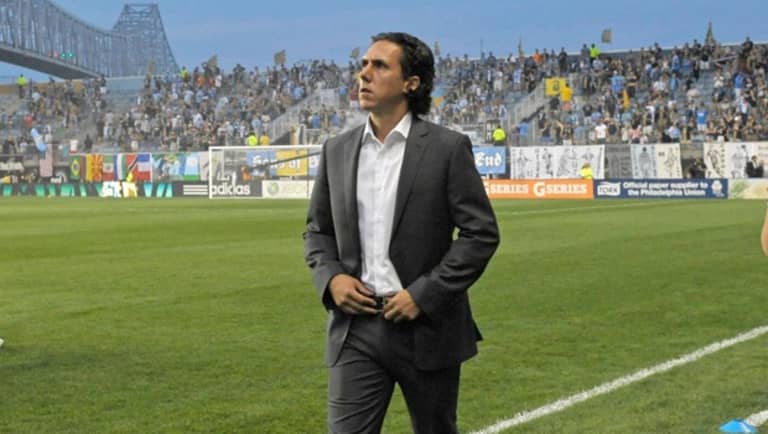
Biello won his last trophy in his last game, coming on as a sub in the second leg of a 6-3 aggregate win against the Vancouver Whitecaps in the 2009 USL First Division Championship. Midway through that season, Biello asked the club to consider him should an assistant coaching opportunity arise.
He announced his retirement and new job the same day.
“Mauro’s very soccer intelligent,” Di Tullio says. “You can have conversations with Mauro, and not just about things that everybody can see. Mauro can go into detail, and I remember him helping me with my game. I was playing on the right, and Mauro was playing as a right winger. We could sit down and have discussions [like], ‘In this scenario, this is what you should be doing.’ I always felt like, hopefully, he would have a team, and if a team can play the way that Mauro thinks, then they can be successful.”
“I always say that – and I think it was [Pep] Guardiola who said it – we’re all idea thieves,” Biello says. “It’s how you manipulate and adapt those ideas into what you want to work on. In the end, I have an open mentality, and I could learn from coaches that are in the Academy, just like I could learn from a coach in this league or in international soccer.”
Biello has so far learned first-hand from five different Montreal head coaches: current Ottawa Fury FC boss Marc Dos Santos, Impact VP of international relations and technical development Nick De Santis, current Red Bulls maestro Jesse Marsch, Marco Schällibaum and the recently dismissed Frank Klopas.
Now it's just a matter of applying those lessons as he auditions for the full-time gig in the midst of playoff race.
“With all that stuff that I’ve learned along the way – and I’m still learning now – hopefully I can stick around,” Biello says.

